These Snacks Made by Disabled Workers Empower With Each Bite
- By Lex Flamm
- Reading Time: 5 mins.
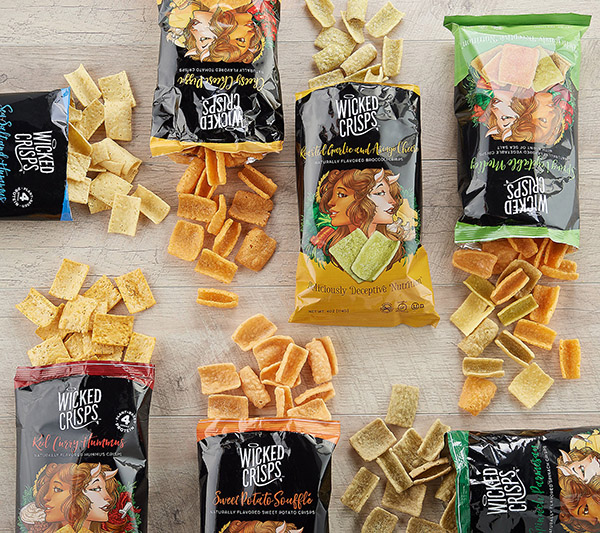
In 1984, Phil Kosak—the founder of Carolina Fine Snacks—was having trouble keeping workers on staff to make his cheese curls, pork rinds, and other bites.
“With seven positions, we went through 250 W2s that year,” Phil told The FruitGuys.
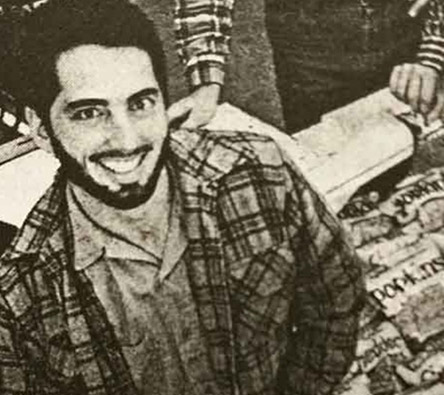
He was at the end of his rope when the local North Carolina Vocational Rehabilitation Program invited him to a job fair for folks with disabilities. There, he met a man we’ll call “John.”
The Hire That Changed Everything
John had a cognitive disability and was legally blind. He told Phil that he’d loved working as a janitor for Holiday Inn in the wee hours of the morning, but the hotel had shut down, leaving him without a job.
“I’m thinking in the back of my mind, anybody that can get excited about cleaning bathrooms at a Holiday Inn, third shift, [can enjoy making snacks],” Phil said.
He hired John on the spot. And although Phil didn’t know it at the time, that moment changed the course of his life. John helped make Phil aware of the discrimination that workers with disabilities face, inspired him to become an activist, and eventually led him to start Wicked Crisps. It’s a better-for-you chip brand on a mission to employ as many workers with disabilities as possible.
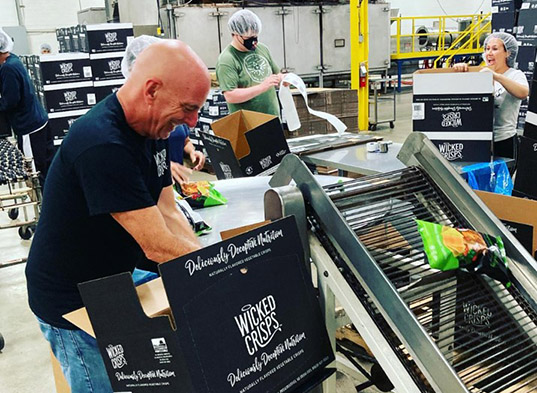
Snacks That Make a Difference
Today, more than half of the people on the Wicked Crisps team have special needs. That’s why The FruitGuys is so excited to highlight the brand’s snacks made by disabled workers as our Snack of the Month for October 2024, which happens to be National Disability Employment Awareness Month (NDEAM).
To celebrate Wicked Crisps and its mission, we’re adding its tasty, vegetable-based Sea Salt and Hummus Crisps to all of our Thoughtful Snack Boxes in October. We’re also offering them in bulk by the case for offices that want to support workers with disabilities and celebrate NDEAM together.
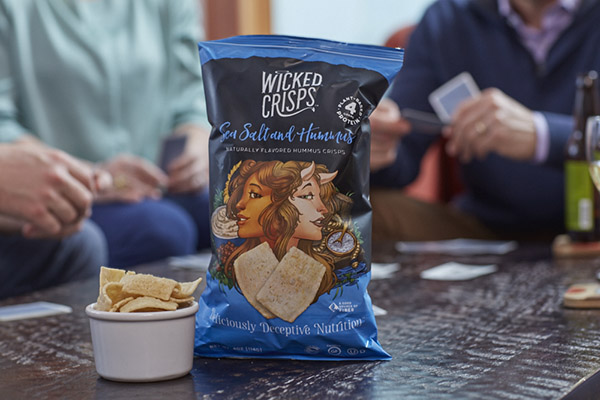
Want to try Wicked Crisps?
We've got you covered.“We’re very heavily invested in the concept that everybody needs a chance, everybody needs to work,” Phil said. “We have a very unique model here. We don’t find ways to automate—we find ways to create jobs. We have ten people doing what many companies would automate, and they build a life around it.”
That all started with John.
Why Hire Workers With Disabilities?
About 40% of all people with disabilities are part of the workforce according to the U.S. Department of Labor. However, they have a tougher time finding jobs than their peers. In August 2024, the unemployment rate for workers with disabilities was 9.1%—more than double the 4.3% unemployment rate for workers without disabilities.
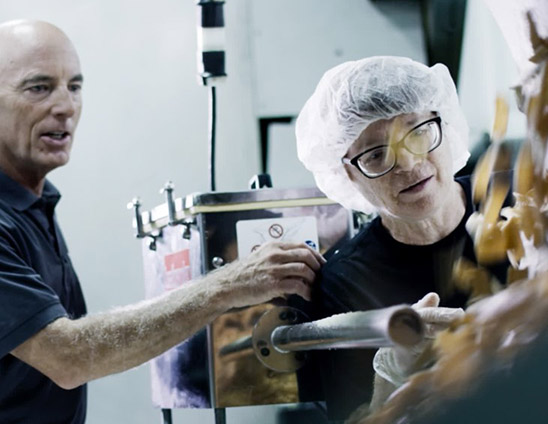
This hesitation to hire comes down to three main things, according to a 2011 survey: “lack of awareness of disability and accommodation issues, concern over costs, and fear of legal liability.” Phil weighed these risks against the benefits of hiring John, a worker with a passion for the job—and it paid off.
“I hired him and it changed our universe. He came into work and started turning out double the work our normal crew was doing,” Phil said.
John’s work ethic inspired the rest of the Carolina Fine Snacks team. They either followed his example or left the company, and within six months, over half of Phil’s staff were people with physical or cognitive disabilities. At the same time, the facility’s productivity nearly doubled. Phil used the profits to give his workers raises and add to their benefits.
From Employer to Activist
The more people with disabilities Phil hired, the more he learned about the discrimination they faced. In the late 1980s, he started advocating for the Americans with Disabilities Act—a landmark piece of legislation passed in 1990. The ADA protects people with disabilities from discrimination in public life, including at work.
To push for the ADA, Phil served on U.S. Senate subcommittees and The President’s Committee for People with Intellectual Disabilities under President George H.W. Bush. When the legislation passed, he kept advocating, joining the leadership teams of organizations like SourceAmerica (formerly National Industries for the Severely Handicapped), The Arc, and The University of North Carolina TEACCH Autism Program.
In a way, starting the Wicked Crisps brand—which highlights snacks made by disabled workers—was just another step in Phil’s advocacy.
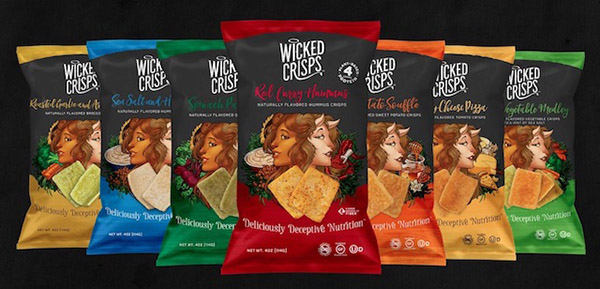
Want to try Wicked Crisps?
We've got you covered.Building Up to Wicked Crisps
Phil is a food scientist by training, and he started Carolina Fine Snacks in 1981 after leaving a job as a process engineer at FritoLay. In the beginning, he made cheese curls and pork rinds in a tiny garage-sized facility. But soon, his creativity became more popular than his snacks. He pitched healthy snack ideas to big brands like Heinz (which owned Weight Watchers at the time) and those partnerships transformed Carolina Fine Snacks into a co-packer.
“Over a ten-year period, we developed and launched close to 200 products for companies all over the world. We were doing all of the research and development and most of the manufacturing,” Phil told The FruitGuys.
The Wicked Crisps Story
Phil stuck to that model for almost forty years. But in 2018, he decided to make a change. He was tired of working for other companies and jumping from one product to another without real stability for himself or his workers. So, he found a business partner—a service-disabled veteran who prefers to remain anonymous—and got to work creating the brand Wicked Crisps, which focuses on snacks made by disabled workers.
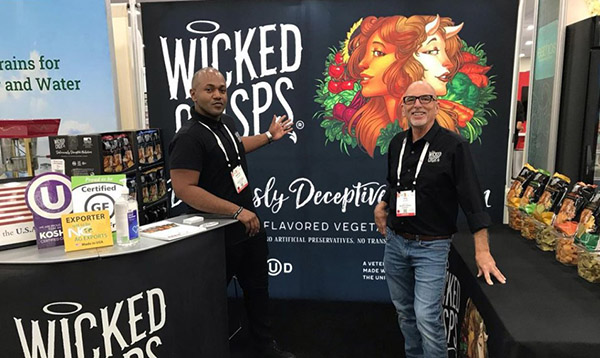
“I had over thirty families, some now second-generation, that were dedicated to the company, and I owed them a way to build something that was bigger than me and what we were doing this week,” Phil said.
To launch Wicked Crisps, Phil relied on his decades of experience creating better-for-you snacks. The brand makes light and crispy chips with veggies like peas, sweet potatoes, spinach, and broccoli. Phil tested more than eighty seasoning blends to get the flavors just right, and each savory, salty bite (toasted to perfection in an oven Phil designed) is so tasty you’d never guess it’s good for you. The Wicked Crisps name is a nod to that “delicious deception.”
How to Show Your Support
Wicked Crisps sells snacks made by disabled workers, but it also builds community. There, everyone is welcome and given the tools and opportunities they need to shine. As the Wicked Crisps website puts it, “Phil sees that people are not only defined by their past. He sees the extraordinary potential in people and is committed to helping them find their own magic.”
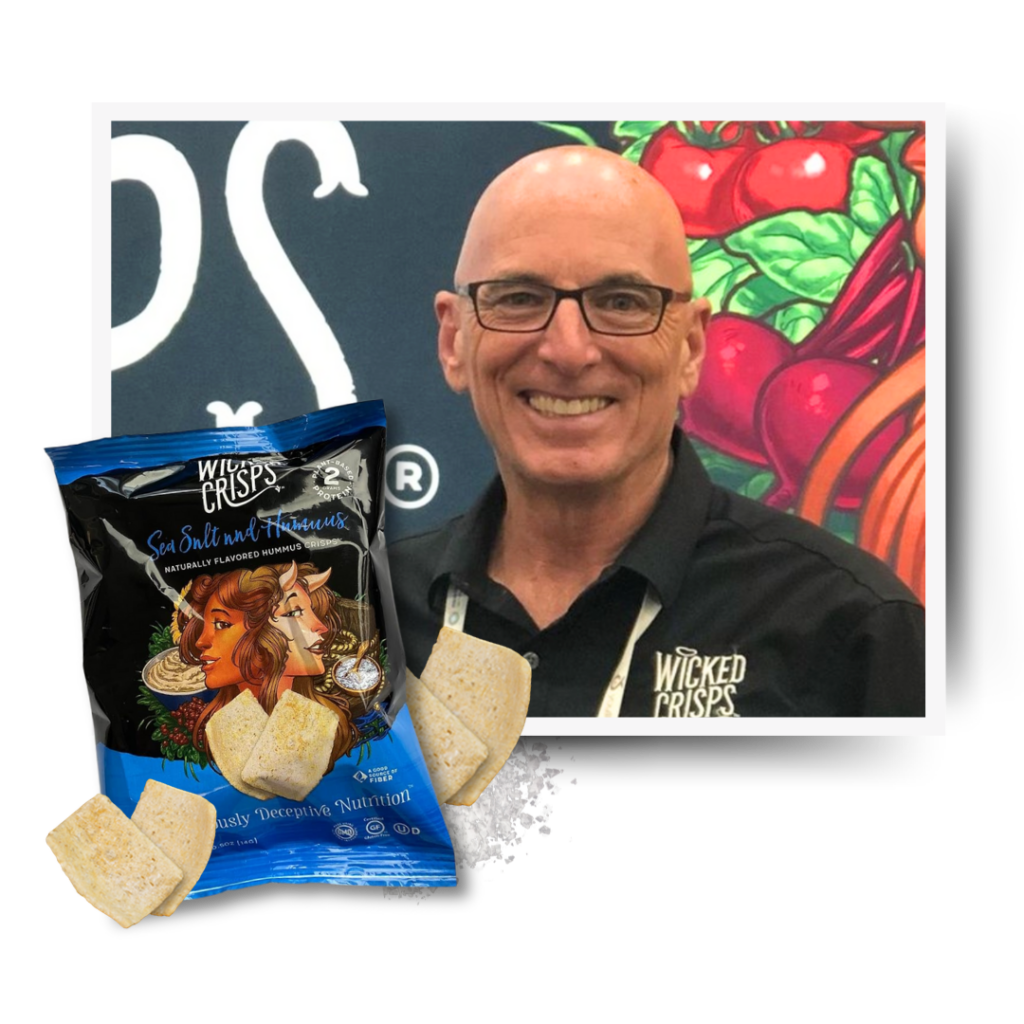
This is just the kind of fruitful partnership The FruitGuys loves to make. As Head of Impact Shelia Cassani put it, “At The FruitGuys, we believe that building an inclusive supply chain is essential to advancing sustainability and fostering opportunities for all.”
To join us in supporting Wicked Crisps and celebrate National Disability Employment Awareness Month (NDEAM) in your office this October, check out The FruitGuy’s Thoughtful Snack Boxes and/or order Wicked Crisps Sea Salt and Hummus Crisps by the case.


